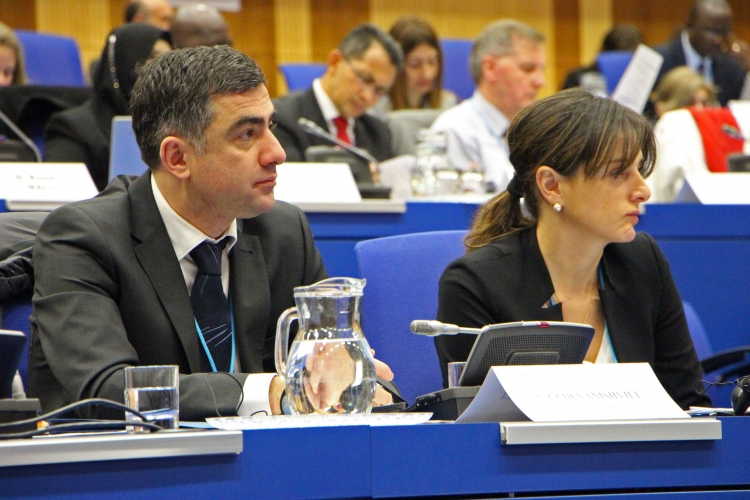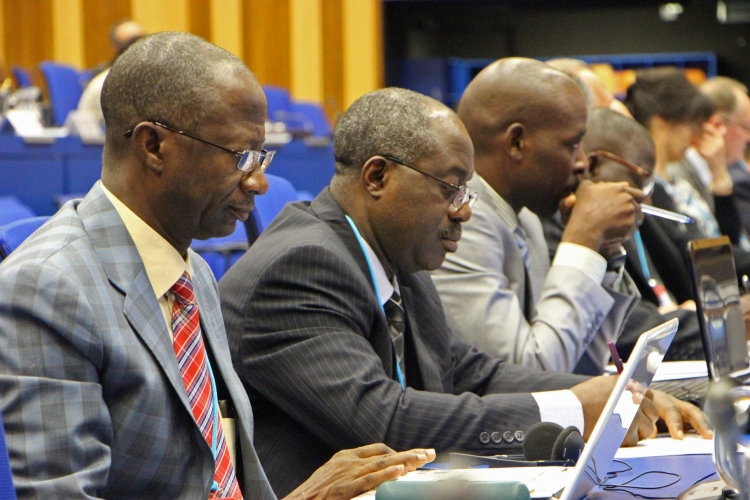With the aim of building sustainable infrastructures and capabilities, recent IAEA General Conference resolutions have encouraged Member States to establish national strategies for education and training in radiation, transport and waste safety. In keeping with these resolutions, Agency experts welcomed more than 60 high-level policy- and decision-makers from radiation protection authorities and national ministries to the Vienna International Centre for a two-day consultative meeting on the subject, from 16-17 December.
Although significant progress has been made in this domain, the consultative meeting was organized to address the needs of Member States who do not yet conform to the International Basic Safety Standards for Radiation Protection. Mr Dazhu Yang, Deputy Director General (DDG) and Head of the Department of Technical Cooperation, was joined by Mr Juan Carlos Lentijo, DDG and Head of Department of Nuclear Safety and Security, in providing the meeting's opening remarks.
"Truly making progress means building on the work and gathering the commitment of many players: regulators, end-user facilities, academia, Ministries of Health, Ministries of Science, atomic energy commissions," explained Deputy Director General Yang.
The main objective of a national strategy in the area of radiation, transport and waste safety is to achieve the desired level of competence in a timely and effective fashion, taking into account needs at the national level and optimizing the available resources across all Member States. This is in line with the IAEA's 'Strategic Approach to Education and Training in Radiation, Transport and Waste Safety (2011-2020)'.





